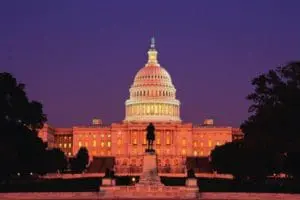Last week a coalition of 18 organizations, including the Data Quality Campaign, released a paper recognizing the critical role of the federal government in creating the conditions and supports for the safe and effective use of student data. The paper highlights the incredible developments in education and its use of data and online services in recent years and identifies three areas where the federal government is uniquely positioned to provide supports and guidance to states and districts:
- Ensuring federal laws provide a strong foundation to protect student information.
- Ensuring the federal government coordinates across agencies to provide clarity as to how privacy laws work together.
- Supporting state and local capacity to safeguard data.
It is truly noteworthy that such a diverse group of education champions have found a strong common ground on which to build a federal framework that both supports the use of data in education and establishes the safeguards necessary to ensure privacy.
The recommendations outlined are timely as student data privacy has recently received significant federal attention. Last year, Senators Ed Markey (D-MA) and Orrin Hatch (R-UT) looked to amend the Family Educational Rights and Privacy Act (FERPA) (a federal law providing key student privacy protections) beginning a conversation that continues today. Congress is also looking at protecting the student data collected through the use of online services. Representatives Luke Messer (R-IN) and Jared Polis (D-CO) just introduced the Student Digital Privacy and Parental Rights Act governing the activities of online service providers. This bill also has broad support from the education community.
The administration shares Congress’s interest in addressing data privacy. President Obama announced a multi-pronged federal approach to safeguarding student data privacy during a speech early this year at the Federal Trade Commission and mentioned the topic again in his State of the Union address.
These federal conversations about data privacy are especially important as Congress works to reauthorize the Elementary and Secondary Education Act (ESEA). Committee discussion has been data-heavy, considering issues around data collection and reporting, accountability, assessments, and the efficacy of state education data systems. As we discuss the opportunities for future education data use, safeguarding privacy must be a part of the conversation and not a separate event.
DQC and the paper’s signatories hope that this high level statement can be a guiding light as the field continues to engage in discussions about the federal role in supporting effective data use. When data use is supported effectively at the federal, state, and local levels, and are safeguarded as an integral part of that use, we can unlock the incredible power of education data to help our nation’s students succeed.


